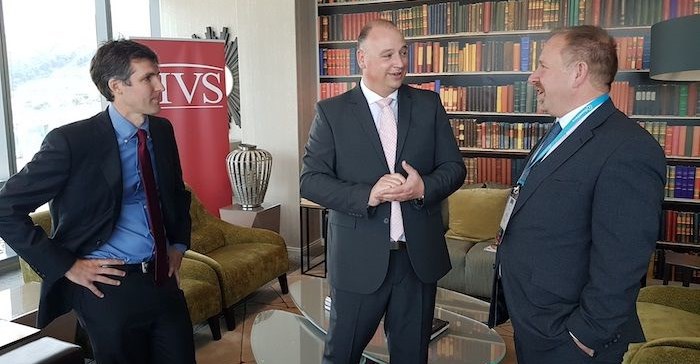#THINCAfrica: Value of African hotel markets growing despite challenges

“The number of markets included in the study continues to grow each year, exemplifying the ever-increasing interest in the African hotel market. In the first edition, we had 14 cities. That grew to 18 in the second edition, the third edition featured 21 cities, and we are now delighted to include 23 cities with the addition of Abidjan, Dakar, Kampala, Maputo in the fourth edition 2017 edition of the HVI,” says Tim Smith, managing partner at HVS South Africa.
The HVI provides reliable, accurate data to hotel investors, enabling them to assess risk and reward for future developments. Data is not easily available across Africa - it simply does not exist, or it is old or inconsistent. HVS has access to data through its extensive network and database, which allows in-depth extensive research and data gathering in order to provide accurate data and objective insights on each of the African markets.
Growth in African hotel markets
Smith says that in spite of the challenges of Ebola, the Zika Virus, presidential elections slowing down economies, low oil prices and the threat of terrorism, 17 out of the 23 markets covered increased value in 2016.
In 2015, 10 markets out of 21 cities were growing; in 2016, 14 markets were on the rise and Maputo, Windhoek and Casablanca, among others, have shown an impressive recovery.
The HVI reports that most African countries now have a steady but realistic growth that investors can rely on when making investment decisions. Despite a more conservative outlook, GDP is much higher than many global economies.
“The future of hotel demand in Africa will follow a positive trend in the long-term. Signs of recovery and improvement on 2016’s relatively tough numbers are already up and most of these markets are continuing to grow, so we are expecting 2017 to be even better,” said Smith.
Future for SA tourism looks promising
On South Africa, Smith said hotel values are booming in Cape Town in rand but the return looks far less exciting when converted back in US dollar terms. That all comes down to currency; the rand weakened by 15% in 2016 vs. 2015 and is now up by 10% against the US dollar 2016.”
The HVI reports that the future of South Africa’s tourism is looking promising as the rand has recently strengthened again and more than 2,500 rooms are expected to be added over the next five years, including the new Radisson Blu, Radisson RED, Sun International, Marriott, Tsogo Sun and Ibis brands.
The HVI is a hotel valuation benchmark developed by HVS. It monitors annual percentage changes in the values of typically four-star and five-star hotels in 23 major African cities. Additionally, the index allows ranking of each market relative to an African average. The HVI also reports the average value per room, in US dollars, for each market. All data presented is in US dollars.
Consequences of restrictive visa conditions
But restrictive visa conditions have broad economic consequences for the tourism sector. The African Union (AU) launched the Africa Visa Openness Index acknowledging the importance of the movement of people within Africa, marking an encouraging step forward for African economies. Many countries such as Mozambique, Senegal, Ethiopia and Uganda now offer visa on arrival opening their borders to a broader range of tourists.
The African hotel industry will continue to face challenges in the short-term. However, the positive news is that international and African unions are working together to promote the future of tourism in Africa, connectivity is improving at a fast pace and many countries introduced e-visa and visa on arrivals in 2016/17.























